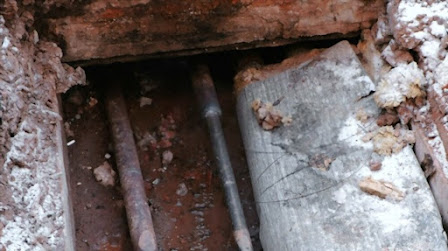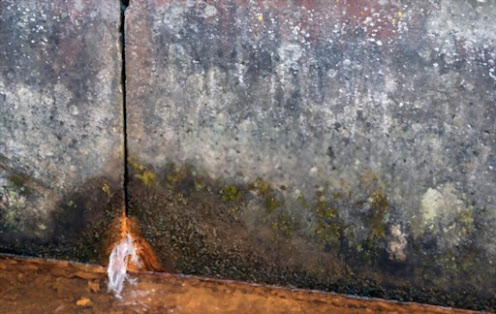Top 12 most common causes of slab leaks in Los Angeles
A slab leak can be a serious problem for a home or business. Unfortunately, they are also quite common in Los Angeles. There are a number of reasons why a slab leak might occur, and it is important to know what these are so that you can take steps to prevent them if possible. In this blog post, we will discuss the twelve most common causes of slab leaks in Los Angeles. We hope this information will be helpful for both property owners and professionals who work in the plumbing industry.
Could you be experiencing a slab leak? A slab leak is a water leak that occurs underneath ground level in your home. It can cause serious and costly damage if not fixed right away. In this blog post, we will list the top 12 most common causes of slab leaks in Los Angeles. If you're concerned that you may be experiencing a slab leak, please don't hesitate to hire one of our experts at for fix leak issue. We would be happy to assess the situation and provide you with the best possible solution. Thanks for reading!
slab leaks are a common problem in Los Angeles. There are many causes of slab leaks, but the most common are:
1. Poorly installed or maintained water lines – Over time, water lines can become corroded or damaged. This can lead to leaks in the slab, which can be difficult and expensive to repair.
2. Shifting soil – Los Angeles is situated on a number of fault lines, which can cause the ground to shift. This movement can put stress on water lines, causing them to leak.
3. Tree roots – Trees roots can grow into and damage water lines, causing leaks in the slab.
4. Construction defects – Improperly installed or faulty water lines are one of the leading causes of slab leaks.
5. Water pressure – High water pressure can put stress on water lines, causing them to leak.
6. Poorly sealed joints – If the joints between sections of pipe are not properly sealed, water can seep through and cause slab leaks.
7. Temperature changes – Sudden changes in temperature can cause water lines to expand and contract, which can lead to leaks.
8. Corrosion – Over time, water lines can corrode and develop leaks.
9. Soil erosion – Erosion can expose water lines and make them more vulnerable to damage, leading to slab leaks.
10. Chemical contamination – Chemicals in the soil or in the water can corrode water lines and cause leaks.
11. Poorly designed drainage – If drainage systems are not designed properly, they can allow water to seep into the slab and cause leaks.
12. Damaged sewer lines – Sewer lines can be damaged by tree roots, shifting soil, or other factors. This can cause sewage to leak into the slab and lead to slab leaks.

slab leaks are a common problem in Los Angeles, but there are many ways to prevent them. By understanding the most common causes of slab leaks, you can take steps to avoid them in your own home or business.
If you suspect a slab leak, it is important to hire a professional plumber immediately. Slab leaks can cause extensive damage to your property and can be very costly to repair. A qualified contractor will be able to quickly diagnose the problem and make the necessary repairs.
Author Bio:- Josephine Floyd
Josephine Floyd is a marketing head at EZ PLUMBING USA. He is an experienced marketing leader with over 12 years of experience in the plumbing industry. With extensive knowledge of severe water damage, mold damage, and fire damage, as well as general plumbing services, he writes articles about water and flood damage repair and restoration along with heating installation, maintenance, and repair to make readers aware of the potential risk and quick actions they can take to reduce damage. Keep reading his latest articles to have an understanding of whether your plumbing system is intact or not; if not, what you should do to fix it.



Comments
Post a Comment